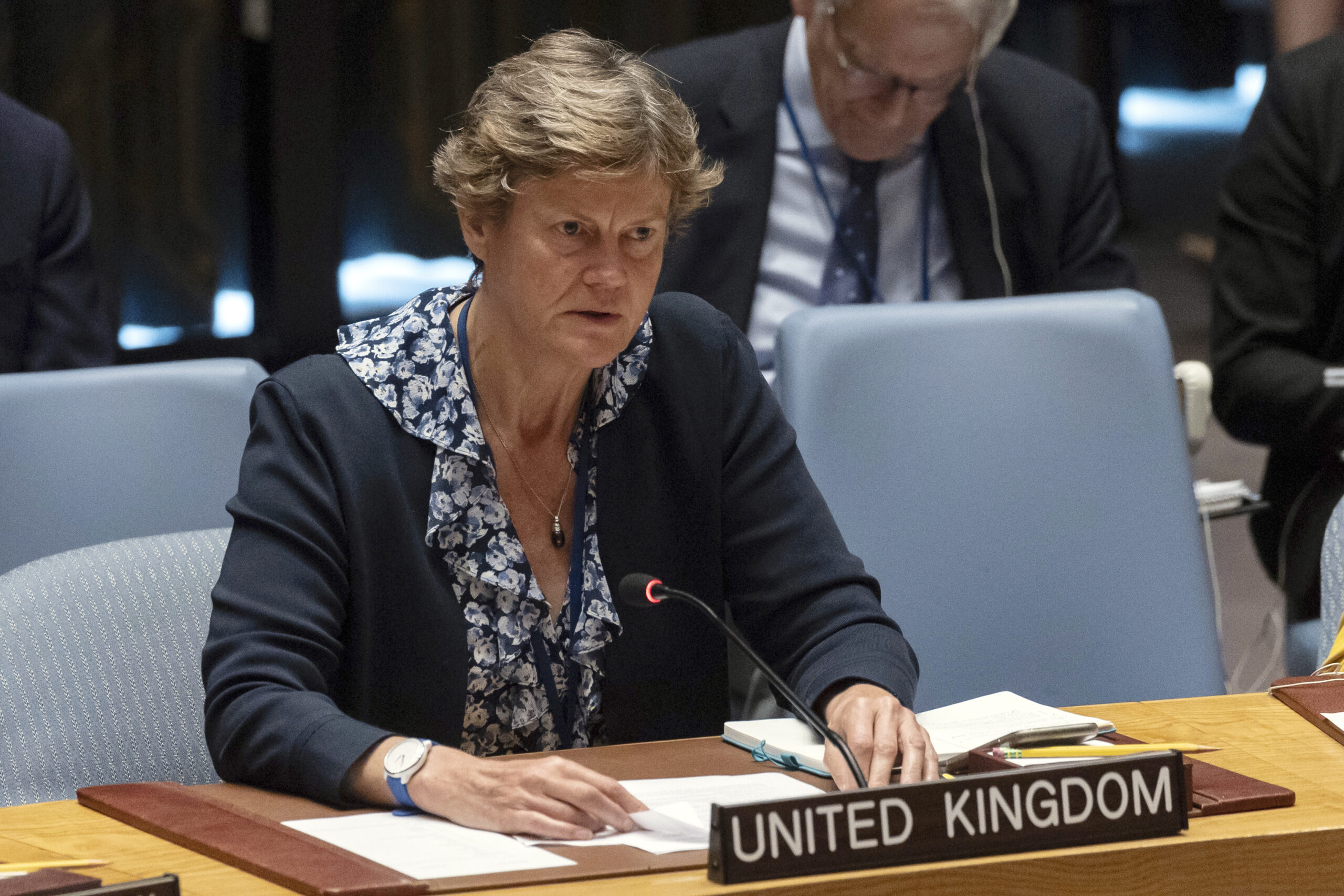NEW YORK (AP) – The UN Security Council will hold a first-ever meeting on the potential threats of artificial intelligence to international peace and security, organized by the United Kingdom which sees tremendous potential but also major risks about AI’s possible use for example in autonomous weapons or in control of nuclear weapons.
UK Ambassador Barbara Woodward on Monday announced the July 18 meeting as the centerpiece of its presidency of the council this month. It will include briefings by international AI experts and Secretary-General Antonio Guterres, who last month called the alarm bells over the most advanced form of AI “deafening,” and loudest from its developers.
“These scientists and experts have called on the world to act, declaring AI an existential threat to humanity on a par with the risk of nuclear war,” the UN chief said.
Guterres announced plans to appoint an advisory board on artificial intelligence in September to prepare initiatives that the UN can take. He also said he would react favorably to a new UN agency on AI and suggested as a model the International Atomic Energy Agency, which is knowledge-based and has some regulatory powers.
Woodward said the UK wants to encourage “a multilateral approach to managing both the huge opportunities and the risks that artificial intelligence holds for all of us,” stressing that “this is going to take a global effort.”
She stressed that the benefits side is huge, citing AI’s potential to help UN development programs, improve humanitarian aid operations, assist peacekeeping operations and support conflict prevention, including by collecting and analyzing data. “It could potentially help us close the gap between developing countries and developed countries,” she added.
But the risk side raises serious security question that must also be addressed, Woodward said.
Europe has led the world in efforts to regulate artificial intelligence, which gained urgency with the rise of a new breed of artificial intelligence that gives AI chatbots like ChatGPT the power to generate text, images, video and audio that resemble human work. On June 14, EU lawmakers signed off on the world’s first set of comprehensive rules for artificial intelligence, clearing a key hurdle as authorities across the globe race to rein in AI.
In May, the head of the artificial intelligence company that makes ChatGPT told a US Senate hearing that government intervention will be critical to mitigating the risks of increasingly powerful AI systems, saying as this technology advances people are concerned about how it could change their lives, and “we are too.”
OpenAI CEO Sam Altman proposed the formation of a US or global agency that would license the most powerful AI systems and have the authority to “take that license away and ensure compliance with safety standards.”
Woodward said the Security Council meeting, to be chaired by UK Foreign Secretary James Cleverly, will provide an opportunity to listen to expert views on AI, which is a very new technology that is developing very fast, and start a discussion among the 15 council members on its implications.
Britain’s Prime Minister Rishi Sunak has announced that the UK will host a summit on AI later this year, “where we’ll be able to have a truly global multilateral discussion,” Woodward said.






